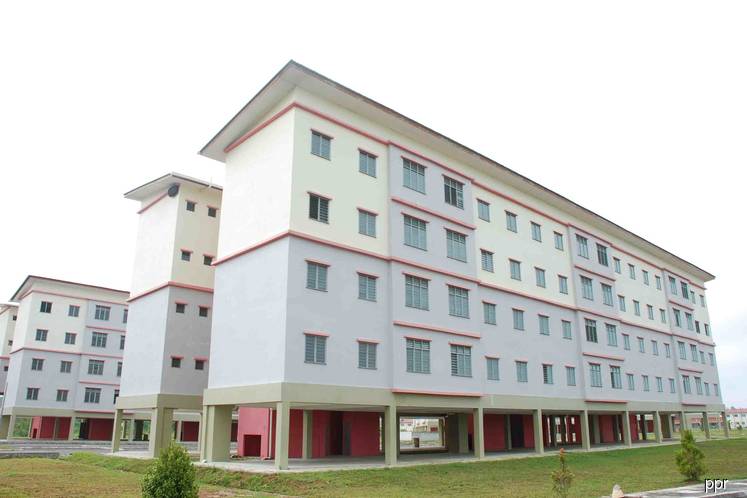PPR folk want jobs, not handouts — UN study

KUALA LUMPUR (Aug 25): Cash transfers from the government were the most helpful form of aid for low-income households, who were hit harder by the Covid-19 crisis, during the Movement Control Order (MCO) period, a study commissioned by two United Nations (UN) agencies showed.
Nonetheless, many representatives of households living in Kuala Lumpur City Hall Projek Perumahan Rakyat (PPR) low-cost flats surveyed during the last week of MCO and the first week of the relaxation of movement restrictions indicated that they preferred assistance that are more sustainable, according to the "Families on the edge" report by United Nations Children's Fund (UNICEF) and United Nations Population Fund (UNFPA) that was conducted in partnership with Malaysia-based public policy research outfit DM Analytics.
While there were also requests for a bigger amount of aid, DM Analytics managing director Muhammed Abdul Khalid said many low-income households surveyed wanted assistance that can have a more lasting impact on their livelihoods, such as equipment to start a burger stall, a place to sell goods or a microloan to start their own business.
"Cash handouts help, but one-off assistance is not sustainable. In particular, they want jobs. So it is not a [culture of asking for government handouts]. They are very proud, responsible and rational people," said Muhammed, who was economic adviser to former prime minister Tun Dr Mahathir Mohamad.
Some 65% of the households surveyed found the Bantuan Prihatin Nasional (BPN) cash transfers to be the most useful form of aid during the MCO, which lasted from March 18 to May 3. This was followed by the 20% who said rent exemption was the most useful, 8% for six-month bank moratorium on loan repayments and 7% for the i-Lestari withdrawals from their own Employees Provident Fund (EPF) Account 2 savings.
The study also found that low-income families in Kuala Lumpur were particularly badly affected by the Covid-19 crisis, with 25% of heads of households unemployed compared with the national unemployment rate of 5.3% in May. Their total monthly median income also fell by about one-third to about RM1,000 on average for June this year, compared with an average of RM1,500 for December 2019 even though only 31% of heads of households surveyed said they cut their working hours during the MCO.
The situation was more dire among female-headed households (ie single mothers), which the study found to have higher rates of unemployment (32% vs 25%) and lower rates of social protection (57% unprotected vs 52%) relative to the average among low-income households.
Some of the research findings had been communicated to the government as part of ongoing stakeholder engagement as well as consultation for Budget 2021, Stephen Barrett, UNICEF Malaysia chief of social policy told reporters.
The first instalment of the "Families on the edge" study seeks to offer critical insights for policymaking to mitigate the impact of Covid-19 on vulnerable groups, assessing changes in a range of indicators between December 2019 (prior to the emergence of Covid-19 in Malaysia) and the end of the MCO in May and June 2020.
A total of 500 heads of households were interviewed between May 27 and June 8 for the socio-economic portion while 30 households were interviewed between May 27 and June 2 for the general well-being portion. The households were selected from 16 of 56 PPR flats.
The households had 5.5 members each on average — 74% of whom had three to six members and 65% had one or two children aged below 17.
"This report is the first snapshot of the situation of families living in urban low-cost flats in Malaysia. The report highlights the particular plight of women and children in female-headed households, which appear to have been badly affected by the crisis. However, the report also highlights the resilience and dignity of these families, many of whom expressed their strong desire to rebuild their livelihoods. There are also highlights of increased shared responsibilities in the homes. Policy intervention such as Penjana has helped, but there is need for more sustained support targeting the women and children who need it the most," said Marcela Suazo, representative of UNFPA in Malaysia.
EdgeProp Malaysia Virtual Property Expo 2020 (VPEX 2020) is happening now! Find out more exclusive projects and exciting deals here
Stay safe. Keep updated on the latest news at www.EdgeProp.my
Never miss out
Sign up to get breaking news, unique insights, event invites and more from EdgeProp.
Latest publications
Malaysia's Most
Loved Property App
The only property app you need. More than 200,000 sale/rent listings and daily property news.
